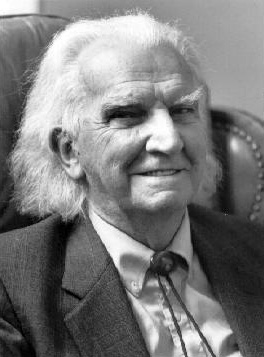What is Systems Theory?
- Ayrıntılar
Systems theory is an interdisciplinary theory about the nature of complex systems in nature, society, and science, and is a framework by which one can investigate and/or describe any group of objects that work together to produce some result. This could be a single organism, any organization or society, or any electro-mechanical or informational artifact. As a technical and general academic area of study it predominantly refers to the science of systems that resulted from Bertalanffy's General System Theory (GST), among others, in initiating what became a project of systems research and practice. Systems theoretical approaches were later appropriated in other fields, such as in the structural functionalist sociology of Talcott Parsons and Niklas Luhmann.
Contents |
Overview

Contemporary ideas from systems theory have grown with diversified areas, exemplified by the work of Béla H. Bánáthy, ecological systems with Howard T. Odum, Eugene Odum and Fritjof Capra, organizational theory and management with individuals such as Peter Senge, interdisciplinary study with areas like Human Resource Development from the work of Richard A. Swanson, and insights from educators such as Debora Hammond and Alfonso Montuori. As a transdisciplinary, interdisciplinary and multiperspectival domain, the area brings together principles and concepts from ontology, philosophy of science, physics, computer science, biology, and engineering as well as geography, sociology, political science, psychotherapy (within family systems therapy) and economics among others. Systems theory thus serves as a bridge for interdisciplinary dialogue between autonomous areas of study as well as within the area of systems science itself.
In this respect, with the possibility of misinterpretations, von Bertalanffy [1] believed a general theory of systems "should be an important regulative device in science," to guard against superficial analogies that "are useless in science and harmful in their practical consequences." Others remain closer to the direct systems concepts developed by the original theorists. For example, Ilya Prigogine, of the Center for Complex Quantum Systems at the University of Texas, Austin, has studied emergent properties, suggesting that they offer analogues for living systems. The theories of autopoiesis of Francisco Varela and Humberto Maturana are a further development in this field. Important names in contemporary systems science include Russell Ackoff, Béla H. Bánáthy, Anthony Stafford Beer, Peter Checkland, Robert L. Flood, Fritjof Capra, Michael C. Jackson, Edgar Morin and Werner Ulrich, among others.






 Note
Note Note
Note Strategists derive further insights into the affect of trends and possible future scenarios when examining the components of the external environment using von Bertalanffy's "General Systems Theory". There is a deeper understanding of the inter-relatedness of the influencing factors in the environment when applying systems theory to the strategic planning model. This approach produces a richer, and thus better, appreciation of the sub-systems that compose the larger synergistic general system that is our global total system. The addition of von Bertalanffy's systems theory perspective to the strategic scanning of the future to 2050 seems practical and wise.
Strategists derive further insights into the affect of trends and possible future scenarios when examining the components of the external environment using von Bertalanffy's "General Systems Theory". There is a deeper understanding of the inter-relatedness of the influencing factors in the environment when applying systems theory to the strategic planning model. This approach produces a richer, and thus better, appreciation of the sub-systems that compose the larger synergistic general system that is our global total system. The addition of von Bertalanffy's systems theory perspective to the strategic scanning of the future to 2050 seems practical and wise.


